On Monday, Feb. 3, 1964, 464,000 New York City school children — almost half of the city’s student body — boycotted school as part of a protest against school segregation. This was one of the largest Civil Rights Movement demonstrations.
An article in the Brooklyn Eagle explains:
Though segregation in New York was not codified like the Jim Crow laws in the South, a de facto segregation was evident in the city’s school system.
Picketers, made up of teachers, parents, students and activists, marched at 300 of the city’s 860 schools, The New York Times reported. The protest culminated in a march across the Brooklyn Bridge to the Board of Education building on Livingston Street in downtown Brooklyn.
Directing the boycott was long-time civil rights activist Bayard Rustin, who had been a chief organizer of the 1963 March on Washington and had helped organize the first Freedom Ride in 1947. Continue reading.
A flier calling for the boycott (on right) explains:
Many parents have wondered why the civil rights groups have called for a school boycott FEBRUARY 3rd. This is a proper attitude and one which deserves both recognition and commendation, for no parent who really has the interest of his child at heart would keep that child out of school without sound reasons.
We have not approached our present position lightly. The fact that most of our members are parents, indeed, working parents, has weighed heavily in our deliberations. And yet, after careful study, we have indorsed the boycott and urge your full support.
Our goal is two-fold; OUR CHILDREN MUST BE GIVEN QUALITY EDUCATION IN A DE-SEGREGATED SCHOOL SYSTEM AND WE MUST KNOW WHEN THEY ARE TO BEGIN RECEIVING IT. We cannot accept any more vague promises of some sort of action sometime in the future.
We are not asking the impossible as some have claimed. We believe that every child, whether he lives in South Jamaica or Kew Gardens, is entitled to the same opportunity to develop his natural abilities.
We are not demanding indiscriminate busing. To achieve what we want there need be little more busing of children than presently exists. We do, however, feel that in a public school system, where busing is required, both Negro and white children should share the experience.
We are not calling for the destruction of the so-called neighborhood school — except where the boundaries of such a school contribute to a pattern of racial segregation.
But, why a boycott? Isn’t there any other way to force the necessary changes?
Again, our reasons are two-fold. A full-scale boycott will show, as will nothing else, how much Negro parents are willing to sacrifice for their children. The moral impact will be such that no person in authority will ever again fail to consider the determination behind our fight for equality of educational opportunities.
Our second reason is more tangible. We have found that one of the quickest ways to destroy inequality and segregation is to hit it in the pocketbook. Financial aid to the school system is based upon pupil attendance.
No pupils — no money. It’s as simple as that.
We honestly don’t want a boycott, but if the Board of Education’s plan falls short – THE DATE IS FEBRUARY 3rd
Learn More
Teaching the 1964 New York City School Boycott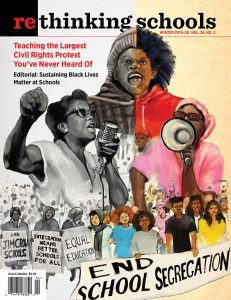 in Rethinking Schools by Adam Sanchez
in Rethinking Schools by Adam Sanchez
For primary sources related to the 1964 boycott, check out the NYC Civil Rights History Project collection on “Boycotting New York’s Segregated Schools.” This collection includes materials on organizing before and during the 1964 boycott, and also explores two boycotts after 1964. The lesser-known 1965 boycott — led by some of the same organizers as the massive 1964 one — focused on the intersection of racism and ableism in New York’s segregated schools for “maladjusted” students. And a 1966 boycott of Harlem schools organized by the Black Panther Party gives evidence both of the party’s early work beyond Oakland, and of its educational goals.
“Jim Crow must go”: Thousands of New York City students staged a one-day boycott to protest segregation — and it barely made the history books in Salon by Matthew Delmont @mattdelmont
On This Day in History, February 3: New York City School Boycott in Brooklyn Eagle
Demand for School Integration Leads to Massive 1964 Boycott — In New York City by WYNC
WSB-TV newsfilm clip of demonstrators protesting school segregation and Malcolm X speaking in favor of the school boycott in New York City, New York, 1964 March 16 from the Walter J. Brown Media Archives and Peabody Awards Collection, The University of Georgia Libraries, Athens, Ga, as presented in the Digital Library of Georgia.
To learn more about public policies that create segregated neighborhoods and schools, watch “The Making of Ferguson” with Sherrilyn Ifill (NAACP Legal Defense Fund) and Richard Rothstein hosted by the Economic Policy Institute.
NYC’s School Boycott at TIME video in the The History You Didn’t Learn series. This eight-minute video on the history of the 1964 boycott includes archival footage and interviews with two of the students involved with boycott and scholars Matt Delmont and Hasan Kwame Jeffries.
Thanks to Melinda D. Anderson for alerting us to this story.

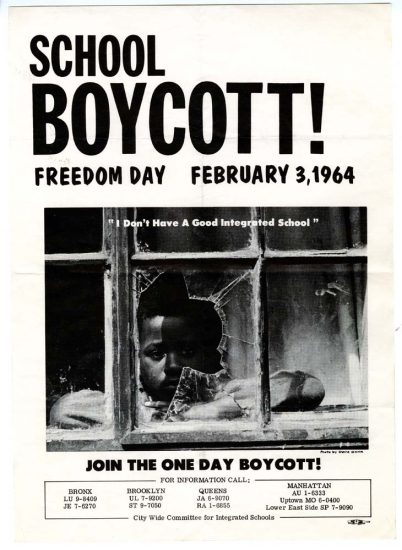
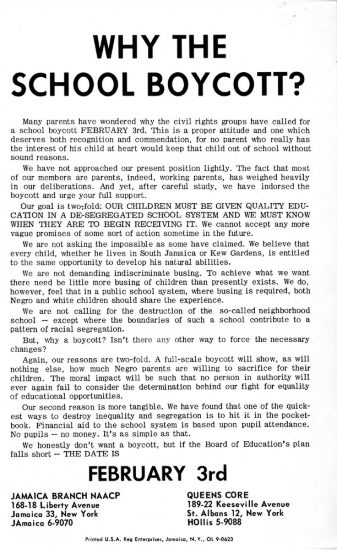
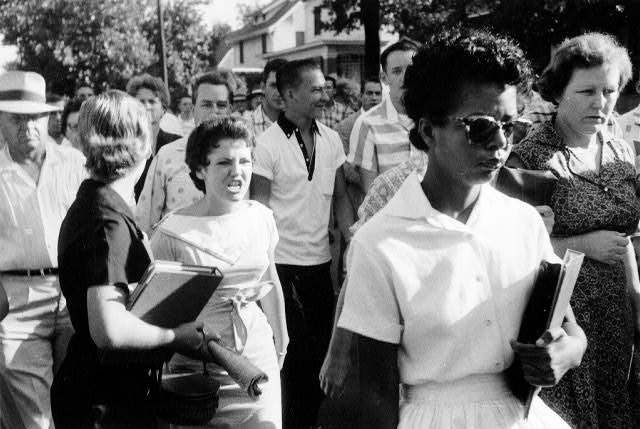
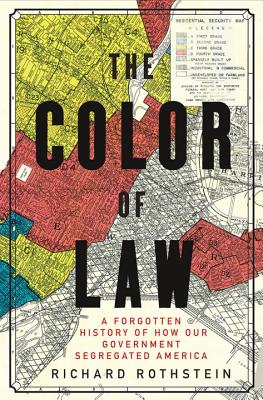
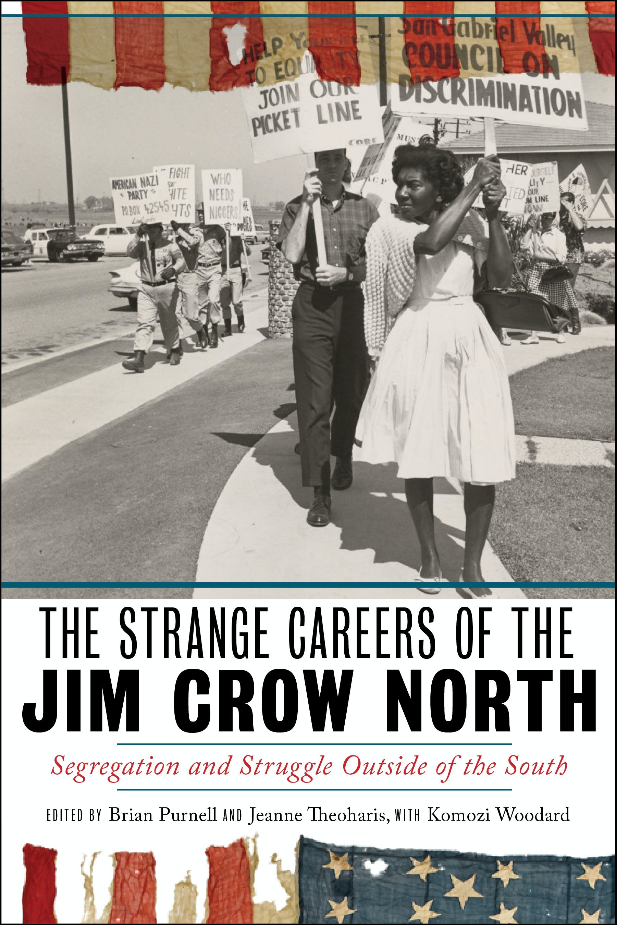
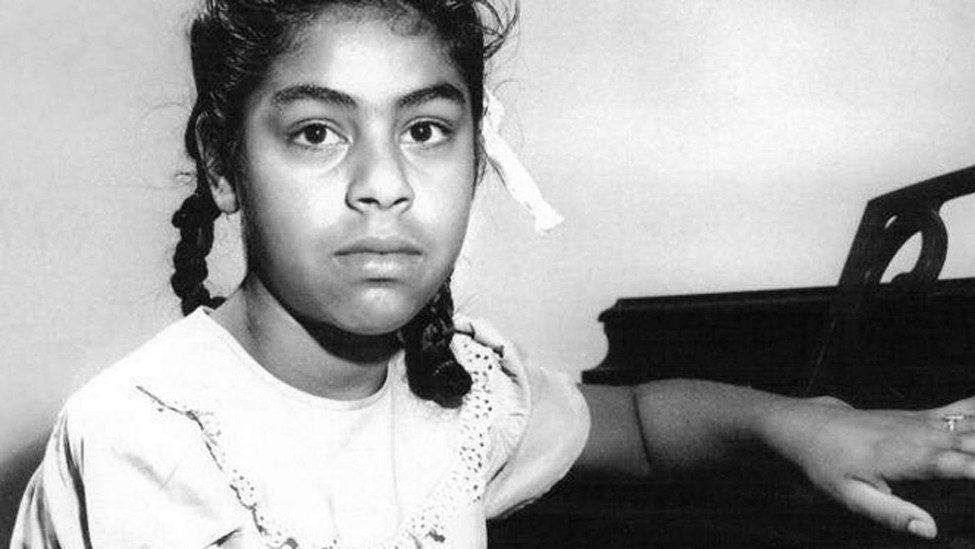
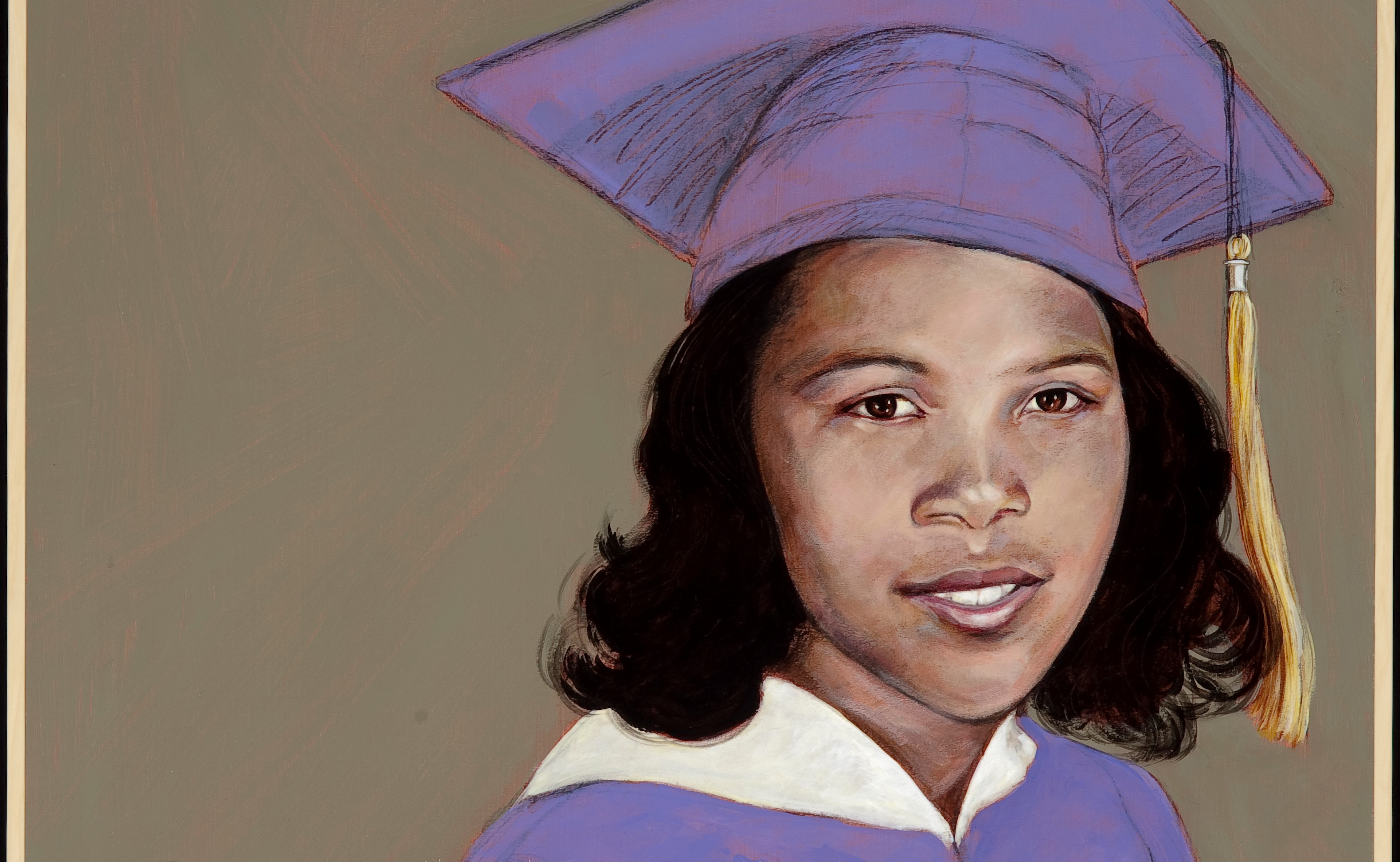
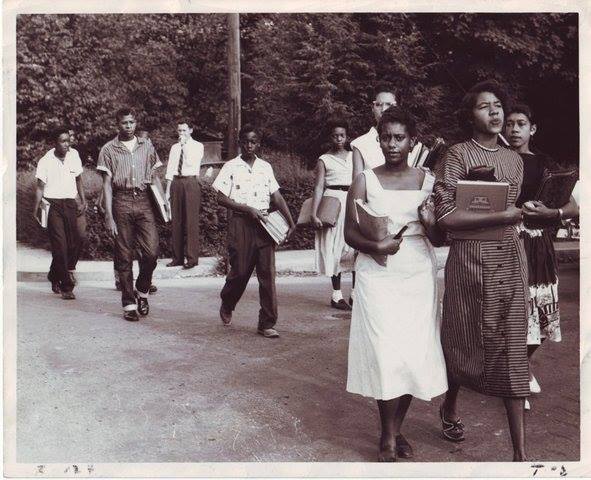
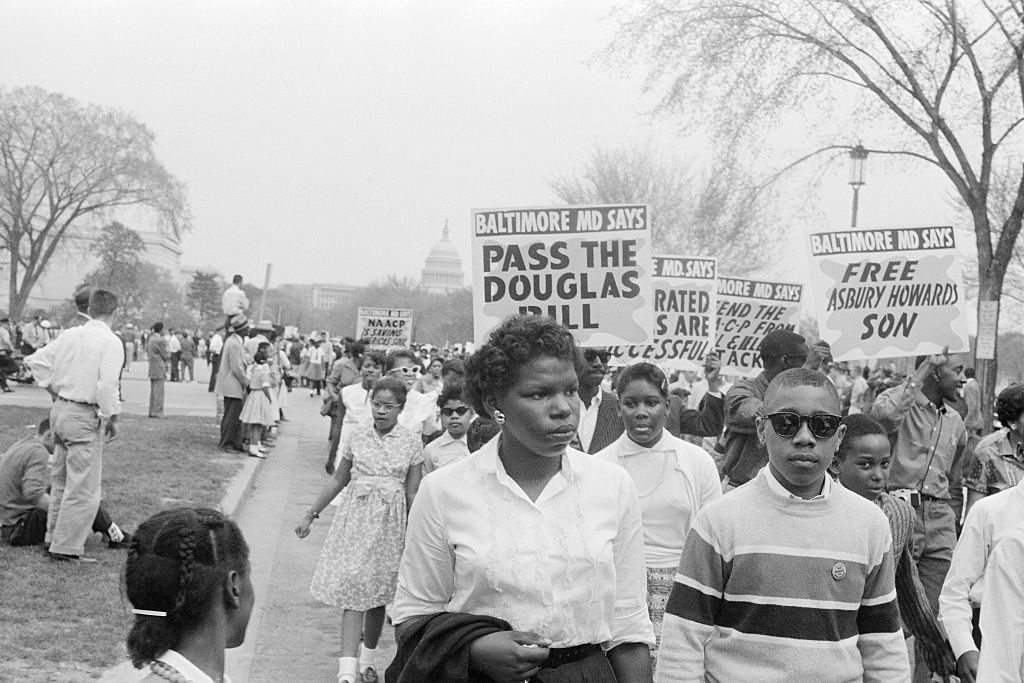
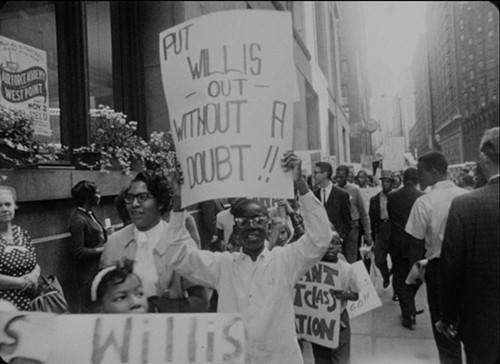
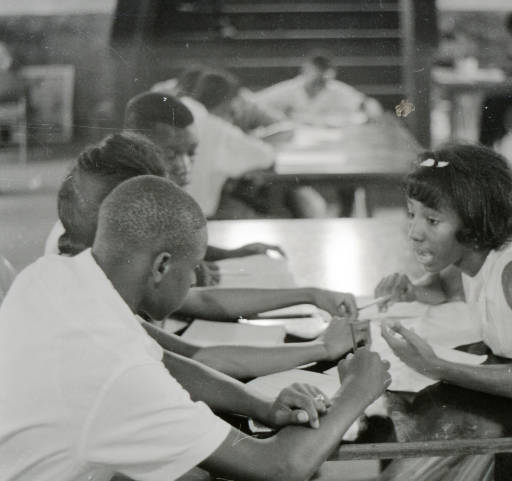
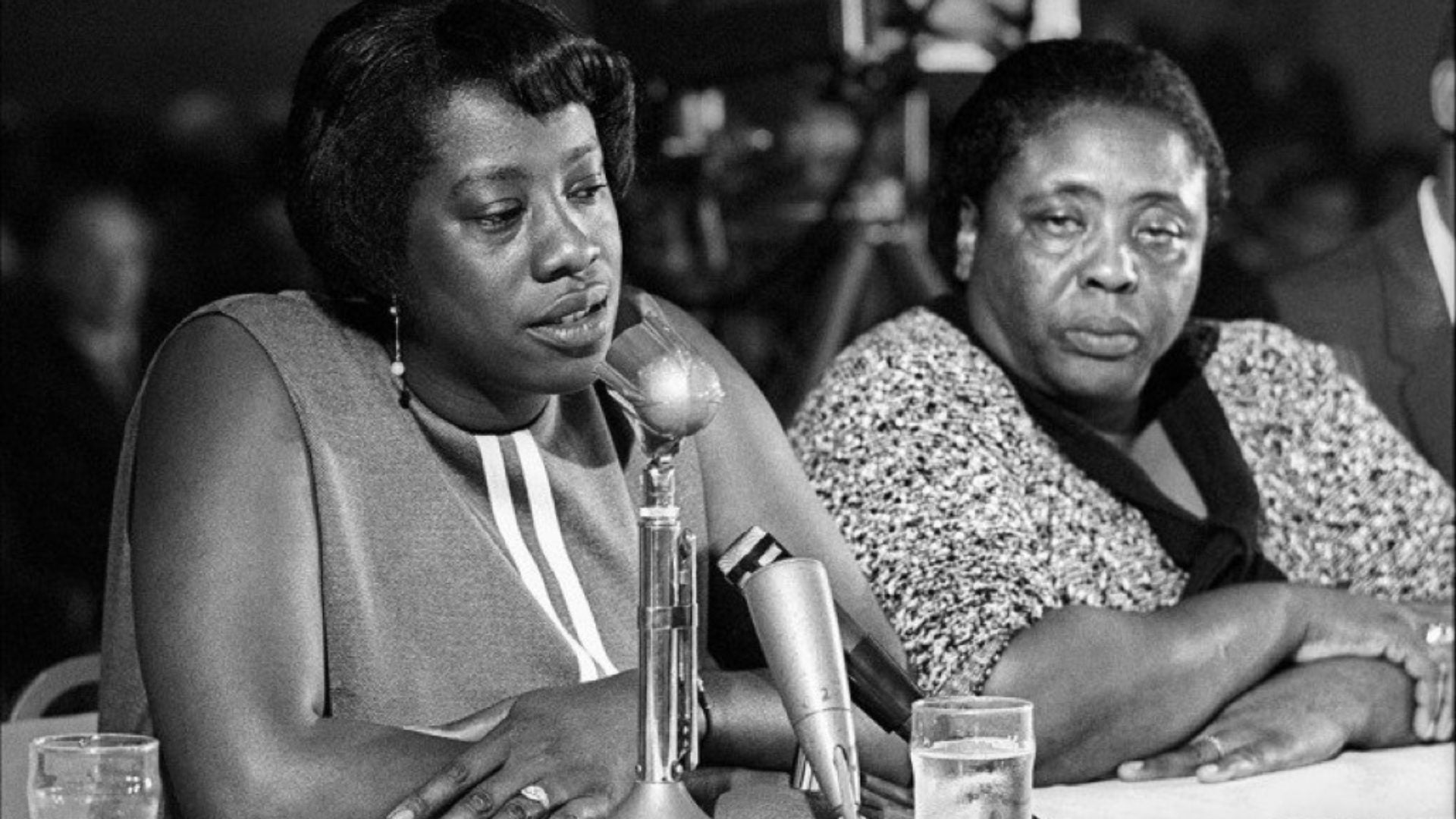






Twitter
Google plus
LinkedIn